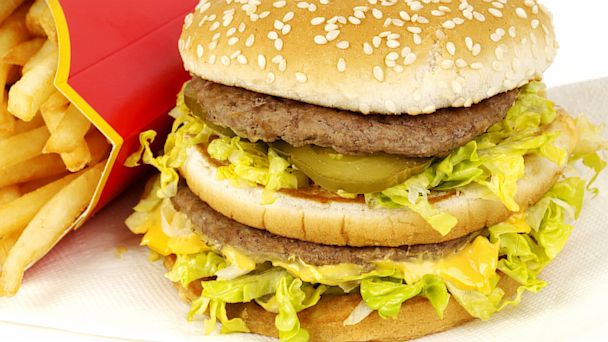Price of Big Mac Could Rise by 68 Cents If Minimum Wage Doubles

(Credit: Getty Images)
As fast-food workers strike and protest in seven cities across the country this week for higher pay, one estimate suggests that raising the minimum wage from $7.25 to $15 an hour could increase the cost of a Big Mac by 68 cents.
Economists have long debated the economic effects of raising the minimum wage, but Arnobio Morelix, an undergraduate student at the University of Kansas School of Business, estimated how increasing pay to $15 an hour would affect prices at the most popular fast-food restaurant in the country, McDonald's.
Morelix created financial models based on McDonald's annual reports and investor data. He estimated that paying workers $15 an hour could raise the price of a Big Mac to $4.67 from $3.99, as first reported by the Huffington Post. A Big Mac meal would jump to $6.66 from $5.69, and McDonald's Dollar Menu would go to $1.17, Forbes reported.
Morelix could not be reached for comment.
Read More: Apple Retail Employees Sue for Unpaid Wages
Danya Proud, a spokeswoman for McDonald's, said Morelix's analysis "is purely speculatory and not something that we are in a position to comment on."
Another estimate suggests the price of a Big Mac would jump 5 cents, or 1 percent, if the minimum wage was raised to $10.50, according to a letter signed by 100 economists in favor of raising the U.S. minimum wage.
"McDonald's could cover fully half of the cost increase by raising the price of a Big Mac, on average, from $4 to $4.05," the letter said. "The remaining half of the adjustment could come through small productivity gains or a slightly more equal distribution of companies' total revenues."
In Photos: McDonald's Menus Around the World
The Employment Policies Institute, a conservative nonprofit that researches the labor market, said a "serious factual error" in Morelix's analysis was his estimate that McDonald's spends only 17.1 percent of its revenue on salaries. The institute estimates 30 to 35 percent of the company's income is spent on labor, and that about 80 percent of McDonald's restaurants were owned by franchisees who are often small business owners.
University of Kansas School of Business economics professor George Bittlingmayer said it was "surprisingly difficult" to reach consensus on the effects of changing the minimum wage.
Bittlingmayer said other factors contributing to low wages include the country's education system and each worker's environment.
"Do we want to treat the symptom or the cause?" said Bittlingmayer, who was not a part of Morelix's analysis. "The symptom is adults making $7 to $10 an hour.
"These discussions of minimum wages point out that there have been huge changes in the labor markets in the last few decades where clearly some people have been doing very well, with similar backgrounds and education, than they had historically," he said. "Others with just a high school degree are doing worse."
Amy Traub, senior policy analyst with progressive public policy organization Demos, favors raising the minimum wage for larger economic reasons, explaining that when low-wage workers have more money in their pockets, they tend to spend it immediately.
"That added consumer demand gives businesses a reason to create jobs," she said.
She points to Demos' research, which finds that if the nation's largest retailers significantly raised wages for their lowest-paid employees, it could create 100,000 or more new jobs, not only pulling working families out of poverty but boosting sales for retailers.
Bittlingmayer said there were many more unintended consequences of a higher minimum wage besides possible higher product prices. With higher wages, employers might demand an expanded skill set or offer less flexibility in workers' hours.
"If you double price of input, you are going to find ways to economize it," Bittlingmayer said.
Read More: McDonald's Forecasts Tough Year Despite New Items
Editor's Note: This blog previously reported that Forbes was the first to describe Morelix's analysis. A correction has been made to credit The Huffington Post.